INSIDE ISSUE 19.24 | June 12, 2020
 BIG STORY: State is hesitant to mandate masks, distancing despite virus surge
BIG STORY: State is hesitant to mandate masks, distancing despite virus surge
NEWS BRIEFS: Two primary challengers unseat longtime Midlands legislators
COMMENTARY, Brack: South Carolina needs to get on the right side of history now
SPOTLIGHT: S.C. Education Association
MY TURN, Elmore: Failure on Medicaid expansion shows lawmakers don’t value black live
FEEDBACK: Column led to sigh of relief
MYSTERY PHOTO: Lots of river rock
S.C. ENCYCLOPEDIA: Voting Rights Act
State hesitant to mandate masks, distancing despite surge
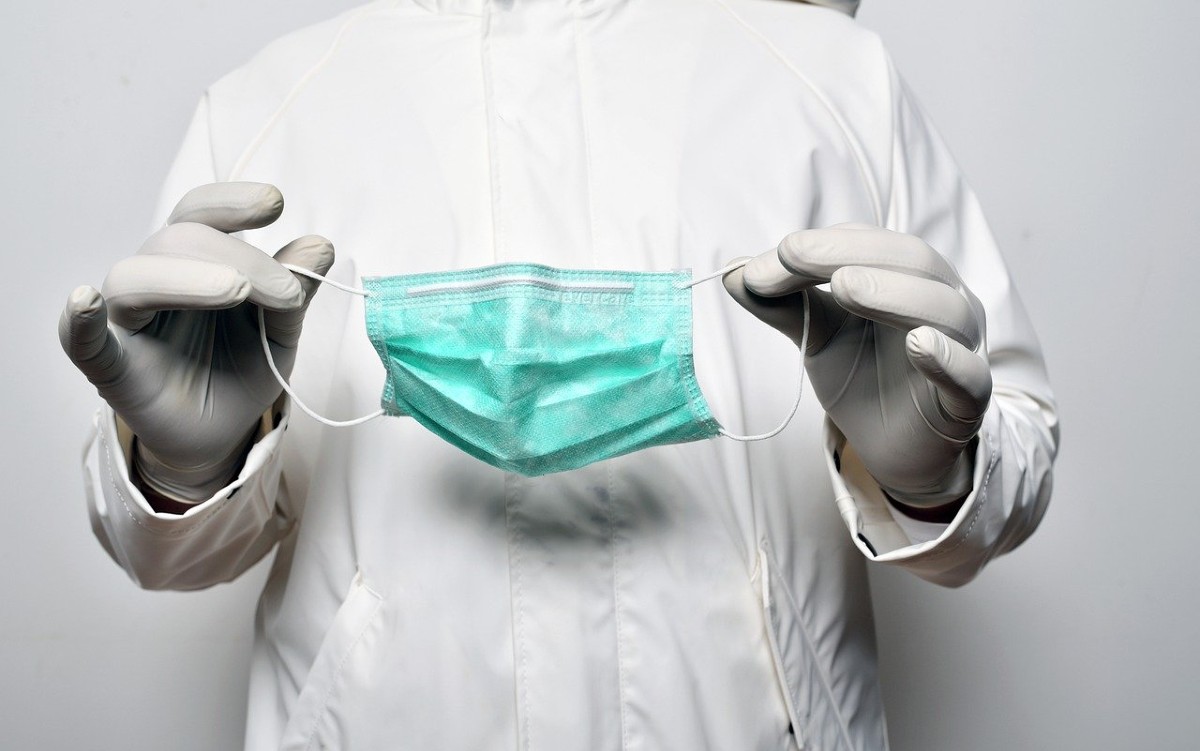
By Lindsay Street, Statehouse correspondent | A doubling in reported daily coronavirus infections in South Carolina has public health experts on alert but tough action from Columbia is unlikely.
The S.C. Department of Health and Environmental Control (DHEC) announced Thursday a record daily high of 687 new COVID-19 cases, following days of increased numbers. Since mid March, 16,441 cases have been confirmed in the state, with 575 deaths linked to the coronavirus. DHEC currently projects 2,379 COVID-19 deaths by Oct. 1.
Gov. Henry McMaster said Wednesday he would not shutter businesses again or mandate wearing masks, citing the economy and enforcement issues.
“Freedom works only if there is personal responsibility,” said Senate Majority Leader Shane Massey of Edgefield. “People are going to have to take more responsible actions to protect themselves and other people.”
The legislature plans to meet June 24 in a two-day special session to address $1.9 billion in federal coronavirus relief aid, but no further action is expected. Both chamber’s leaders did not return requests for comment on this story.
Masks also will not be a requirement for the coming special session, although hand sanitizer will be available, according to the House Speaker’s media liaison, Nicolette Walters. Meanwhile, the session could draw bigger crowds that usual given the ongoing national protests on racial inequity. Last week, Charleston Democratic Rep. Marvin Pendarvis said protesters should bring their concerns directly to the Statehouse during the June 24-25 session. Read more.
Experts say the recent uptick in cases comes from a combination of factors, including reopening the economy, individuals gathering in crowds again and increased testing
“It’s important to note that we can’t definitively say at this time that a first wave is over or that there will be a second wave,” DHEC media liaison Laura Renwick said in a statement.
Clemson Public Health Sciences professor Lior Rennert said he wouldn’t call the spike in cases a “second wave” since that implies there was a first wave that had already ebbed.
“Here, the cases never really dropped,” Rennert said. “We flattened the curve a little bit and then we relaxed social distancing measures and then they spiked.”
‘Everything is going to be shut down anyway’
This week’s leap in cases in South Carolina could be just the beginning of a surge in cases, and like a preemptive work-or-home order, it could have dire economic consequences, experts say.
Rennert said a spike in cases means sick workers unable to work, and the potential for an overloaded hospital system and people dying.
“If cases increase too fast, everything is going to be shut down anyway,” he said.
Around the state, most counties with acute-care hospital beds are reporting more than 70 percent of beds in use.
“We can be at overcapacity very fast. It’s a very infectious disease. People get it a whole lot faster than people recover from it,” Rennert said.
But MUSC microbiology professor Michael Schmidt said he is confident of hospitals’ ability to handle a surge in cases.
“We’ve added many more beds than we previously had,” he said. “We’re better prepared for the second surge.”
Experts say use masks, maintain distances
Dr. Brannon Traxler, a DHEC physician consultant, said Monday that whether the state will witness a huge, continued surge relies on individuals.
 “A lot of it will depend on everybody’s action and whether they follow the recommendation on social distancing and masks,” she said.
“A lot of it will depend on everybody’s action and whether they follow the recommendation on social distancing and masks,” she said.
Schmidt said the state’s reopening has made some people complacent.
“We’re as susceptible as we were in February,” Schmidt said. “We’re not out of the woods because we stayed home. Now we’re going into the woods again.”
Schmidt said the state needs to look at the example of Taiwan, where they did not close down the economy but mandated face masks and did more testing.
“This is the behavior we in South Carolina should be modeling. When we go out in public we should do our fellow human beings a solid and wear the mask,” Schmidt said. “We should have gone to masks sooner but we didn’t know, we didn’t have the data. Now, it’s a shame on us because the data are out there.”
Businesses should enforce social distancing and have a mask policy for employees and customers, Rennert said. Schmidt said restaurant servers can use face shields for better communication and allowing customers to read lips. Businesses also should test employees regularly, Rennert said, adding that there are fewer barriers now to access testing.
The state also should begin random sampling of neighborhoods to understand how much of the population has already been exposed to the virus through antibody testing, Schmidt said. According to DHEC, the agency is working with other state agencies to study populations and how prevalent antibodies are in the community .
What state lawmakers want
But there is a disconnect between DHEC recommendations and some legislators.
Charleston Republican Sen. Sandy Senn likened mask-wearing to “a personal choice” of whether to wear a helmet while riding a motorcycle and that those who have a comorbidity should self-isolate.
But Rennert said personal protection is not why experts recommend wearing a mask. It’s for community protection.
“If you don’t want to wear a mask that’s up to you but you also shouldn’t be allowed to enter certain establishments where you spread the disease,” Rennert said. “It’s just like employees have to wash their hands after using the bathroom.”
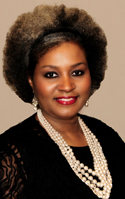
Hopkins Democratic Rep. Wendy Brawley said insisting on people wearing masks is vital to containing the disease while keeping the economy open.
“We have all sorts of rules and restrictions. No one is allowed to go without clothing. This is just as serious if not more so. You’re exposing people to a potentially deadly virus,” she said. “It’s irresponsible public policy not to have in place a requirement to wear a mask in public. We need to protect the lives of others.”
Brawley said she’s hopeful the Legislature will address social distancing and mask wearing during the June 24-25 session.
“If we are serious about actually trying to save lives, we have to get out of that mode of things being optional and seeing that this is a public health crisis,” she said.
Massey said the advice from epidemiologists “sounds simple but it’s clearly not happening,” though he balks at any further government mandate.
“DHEC is probably going to need to spend money on an aggressive education campaign to educate people about what’s going on, the risks and ways to avoid the spread of the virus. It’s going to take much more than what we’ve done on that of really driving the message home. It needs to be a presidential campaign marketing effort,” Massey said.
Brawley said it’s “too late” for an advertising campaign, saying that it should have been done back in March or April for maximum effectiveness. DHEC has already had a campaign underway, seen on SCETV and YouTube.
“Now it’s probably going to take a law to do it and you’ll probably find cities trying to create ordinances,” she said.
- Charleston City Paper’s Heath Ellison contributed to this story.
- Have a comment? Send to: feedback@statehousereport.com
Two primary challengers unseat longtime Midlands legislators
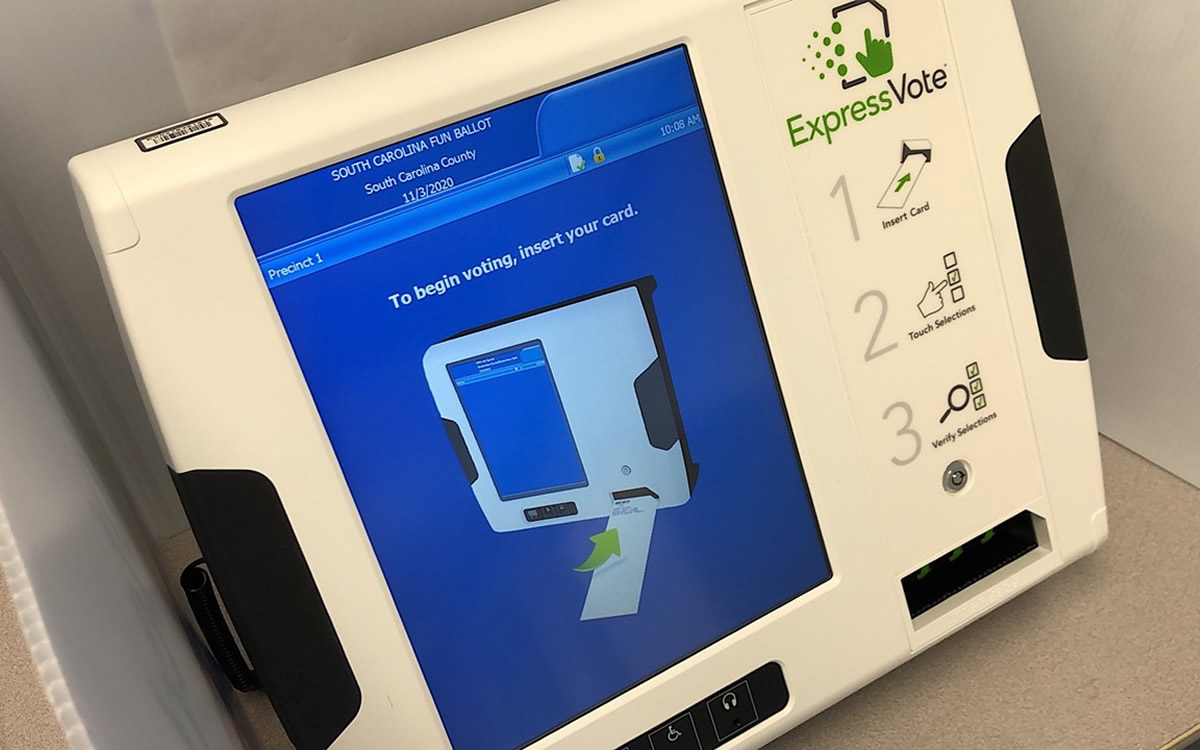
By Lindsay Street, Statehouse correspondent | Primary challengers unseated Eastover Democratic Rep. Jimmy Bales and Pelion Republican Rep. Kit Spires, two longtime lawmakers.
Jermaine Johnson of Hopkins won the Democratic primary against Bales, and faces no other declared party candidate in the general election. Ryan McCabe of Lexington won the Republican primary against Spires and also does not face a declared party candidate in November.
Only 13 of 46 state senators and 25 of 124 House members drew primary challengers. With all Statehouse seats up for election this year, 43 percent of House seats and 22 percent of Senate seats have no primary or general election challengers.
The state saw a 23.04 percent voter turnout for local, state and federal races. Of the 469,043 ballots cast in the Republican primary for U.S. Senate, the only statewide contest, 29,201 were cast in-person absentee and 53,918 were cast by mail. It was a record number of mail-in ballots for a statewide primary, officials said.
The turnout was similar to what the state saw in the 2018 statewide primaries, which included the gubernatorial ballot, of 20.43 percent.
In other news:
![]() Lack of transparency noted in state industrial incentives. The S.C. Legislative Audit Council released a report this week criticizing S.C. Department of Commerce officials for a lack of transparency and for allowing businesses to keep millions in incentives when they don’t create the number of jobs promised. The audit was prompted by a bipartisan group of lawmakers in 2019 amid discussion of state incentives to the Carolina Panthers. The report found the S.C. Coordinating Council for Economic Development approved hundreds of businesses for state assistance, including paying out more than $526 million in grants and $6.2 billion in potential job development credits. Of the 2014 job grant recipients, 81 percent of jobs promised were created — or 6,484 jobs of the 8,050 promised. Some state lawmakers called for Commerce Secretary Bobby Hitt to resign after the report was published this week. Read the report.
Lack of transparency noted in state industrial incentives. The S.C. Legislative Audit Council released a report this week criticizing S.C. Department of Commerce officials for a lack of transparency and for allowing businesses to keep millions in incentives when they don’t create the number of jobs promised. The audit was prompted by a bipartisan group of lawmakers in 2019 amid discussion of state incentives to the Carolina Panthers. The report found the S.C. Coordinating Council for Economic Development approved hundreds of businesses for state assistance, including paying out more than $526 million in grants and $6.2 billion in potential job development credits. Of the 2014 job grant recipients, 81 percent of jobs promised were created — or 6,484 jobs of the 8,050 promised. Some state lawmakers called for Commerce Secretary Bobby Hitt to resign after the report was published this week. Read the report.
Reopening for schools fleshed out. The education subcommittee for the AccelerateSC task force released its draft plan for school reopening Thursday. Recommendations included directing student traffic flow in hallways, eating meals in classrooms and prohibiting visitors past the school lobby. Schools also should consider how they teach traditionally or via distance learning or through a hybrid of the two, task force members said. Read more.
McMaster released proposed spending of federal money. Gov. Henry McMaster issued a letter and report to the General Assembly Wednesday on how he proposes spending $1.9 billion in federal coronavirus aid. His recommendations include: $500 million for the unemployment insurance trust fund, $225 million for state agency reimbursements, $43 million for state health agency reimbursements, $17 million for a 28-day state stockpile of supplies, $215 million for school districts to provide additional days of classroom instruction before the start of school, and $250,000 toward preparing a statewide broadband plan. See the full proposal here.
Broadband expansion discussed. Several groups testified Thursday to the House Education and Public Works Committee’s COVID-19 subcommittee on expanding broadband internet in the state. Subcommittee Chair Raye Felder, R-Fort Mill, said the internet will be vital to educating students in the state, especially given that so many have all but disappeared when schools shut down in March. For example, 61 of about 1,900 students in Bamberg 1 and 2 school districts have not been heard from, she said. Matt Hiatt, director of technology at the Palmetto Care Connections nonprofit telehealth network that serves rural South Carolina, recommended “point to point” outdoor wireless bridging as the fastest way to bring internet to rural parts of the state.
Education Oversight Committee to meet Monday. The S.C. Education Oversight Committee will meet 1 p.m. June 15 at 1041 George Rogers Blvd. in Columbia. Among items on the agenda: A special report on funding charter schools in the state by Dr. Lawrence J. Miller, and an Academic Standards and Assessments committee report featuring action on a parent survey report. See agenda here.
‘Census Day of Action’ set for Wednesday. South Carolina community leaders will push to get more people to complete the census form in one day with “2020 Census Day of Action” June 17. Read more.
- Have a comment? Send to: feedback@statehousereport.com
BRACK: South Carolina needs to get on right side of history

By Andy Brack, editor and publisher | If you want to understand the stark difference between business and government, look to NASCAR.
Just two days after Bubba Wallace, the racing sport’s only black driver, said it was time to remove the Confederate flag from NASCAR’s events and properties, the sport’s operating company did so.
 Two days. To get rid of the painful symbol of the South that’s been a visible feature at racing events for generations.
Two days. To get rid of the painful symbol of the South that’s been a visible feature at racing events for generations.
A few things mark NASCAR’s decisive action:
First, it shows protests following the May 30 police choking death of George Floyd in Minneapolis are having impact. The country is at a civil rights tipping point. While other high-profile deaths by police or white nationalist terrorists pitted America’s soul, Floyd’s last gasps stirred a simmering anger that won’t be quelled. This time, Americans are screaming, for the equity and equality promised in the nation’s founding documents
Second, NASCAR’s quick movement on removing the Confederate flag comes at a time when racing fans will have time to process the controversial symbol that offends so many that others find a reminder of Southern heritage. It’s probably not a coincidence that no NASCAR fans can attend events because of coronavirus distancing. Let’s hope NASCAR officials enforce the ban, don’t back down.
Third, corporate bigwigs are keenly sensitive to what’s happening in the streets. They know if they’re on the wrong side of public perception on this new civil rights movement, their brands and bottom lines could be impacted negatively. What’s happening is a perfect storm for change in corporate America because of the unique blend of companies that want to do the right thing but also have a desire to stay in business.
Finally, elected officials better wake up to new political realities stemming from the protests. The people now protesting aren’t going to wait years for change as they did in the slog of getting the Confederate flag off the Statehouse dome and then off the Statehouse grounds. Right now, just over half of Americans support Black Lives Matter, making it more popular than Donald Trump or Joe Biden, observes Bloomberg editor Frances Wilkinson.
Just a few weeks ago, who would have thought there would be serious discussion about renaming American military bases named for Confederate leaders? Who would have thought Confederate monuments would topple across the South? Who would have thought the people of Mississippi would be having serious discussions about replacing its current state flag, which includes the Confederate battle symbol, with a new flag?
Now South Carolina, home of the first shots of a Civil War, needs to get on the right side of history by taking proactive steps to reduce inequities and promote equality. Legislators need to repeal the state’s Heritage Act, which keeps local communities from removing monuments, such as the more than 100 that glorify the lost cause of the Civil War. State lawmakers need to reexamine and refresh whole governing, education and health care systems to flush away oppression and privilege and replace them with inclusion and acceptance.
If state lawmakers don’t move as decisively as NASCAR and other corporate giants when they reconvene at the end of the month to deal with the state budget and coronavirus, they will face anger, resentment and impact at the polls in November. It wouldn’t be surprising, for example, if some incumbents without challengers (thanks to gerrymandering) suddenly find themselves with write-in opponents. And in South Carolina, we know write-in candidates can win. That’s how Strom Thurmond got into the U.S. Senate in 1954.
Demanding times demand thoughtful, decisive action. The American protests of spring aren’t going to fade away this time. Those in power need to keep these words in mind as they make decisions on our collective future:
“We hold these truths to be self-evident, that all men are created equal, that they are endowed by their Creator with certain unalienable Rights, that among these are Life, Liberty and the pursuit of Happiness.”
Amen.
Andy Brack is editor and publisher of Statehouse Report. Have a comment? Send to: feedback@statehousereport.com.
S.C. Education Association
 The public spiritedness of our underwriters allows us to bring Statehouse Report to you at no cost. This week’s spotlighted underwriter is The South Carolina Education Association(The SCEA), the professional association for educators in South Carolina. Educators from pre-K to 12th grade comprise The SCEA. The SCEA is the leading advocate for educational change in South Carolina. Educators in South Carolina look to The SCEA for assistance in every aspect of their professional life. From career planning as a student to retirement assessment as a career teacher, The SCEA offers assistance, guidance, and inspiration for educators.
The public spiritedness of our underwriters allows us to bring Statehouse Report to you at no cost. This week’s spotlighted underwriter is The South Carolina Education Association(The SCEA), the professional association for educators in South Carolina. Educators from pre-K to 12th grade comprise The SCEA. The SCEA is the leading advocate for educational change in South Carolina. Educators in South Carolina look to The SCEA for assistance in every aspect of their professional life. From career planning as a student to retirement assessment as a career teacher, The SCEA offers assistance, guidance, and inspiration for educators.
- Learn more: TheSCEA.org
We’re proud to offer Statehouse Report for free. For more than a dozen years, we’ve been the go-to place for insightful independent policy and political news and views in the Palmetto State. And we love it as much as you do.
But now, we can use your help. If you’ve been thinking of contributing to Statehouse Report over the years, now would be a great time to contribute as we deal with the crisis. In advance, thank you.
— Andy Brack, editor and publisher
Medicaid failure shows lawmakers don’t value black lives
By Brian Elmore, special to Statehouse Report | For every George Floyd and Tamir Rice, Breonna Taylor and Walter Scott, thousands of African-Americans and people of color die silently each year due to a lack of access to health care.

The disparities in mortality from COVID-19 in South Carolina have pulled back the curtain on health care inequities in South Carolina. According to data from the state Department of Health and Environmental Control, African-Americans account for 49 percent of deaths from COVID-19 in South Carolina, despite representing only 28 percent of the state’s population.
The causes of this striking disparity in mortality are plentiful. African-Americans are more likely to work in the types of essential jobs that put them in contact with potentially-infected individuals. African-Americans in South Carolina are also more likely to have the types of co-morbidities that place them at additional risk for severe cases of the virus. African-Americans in our state are more than twice as likely to die from diabetes as whites; heart disease and hypertension also disproportionately affect the African American population. Maternal mortality and infant mortality among African Americans in our state are among the highest in the nation.
These sobering statistics illustrate almost apartheid-like health outcomes between the haves and the have-nots, between those able to obtain health insurance and those who aren’t, and between communities replete with hospitals and doctors compared to those mainly rural, African-American communities without. These disparities reflect a historical lack of access to healthcare for South Carolina’s minorities. African-Americans are almost twice as likely to lack health insurance as whites.
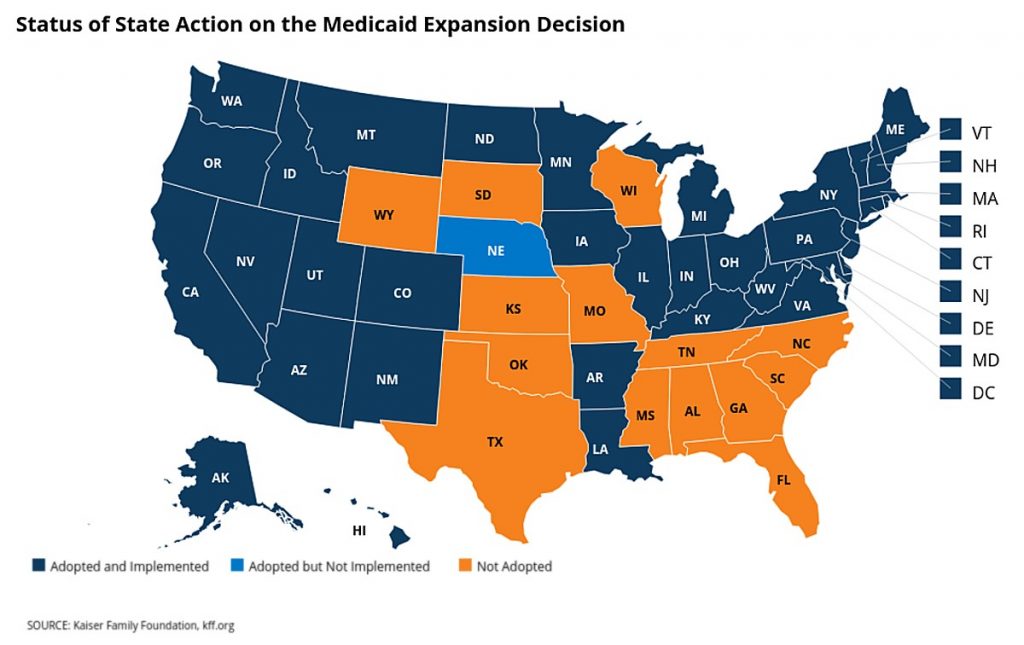 But it does not have to be this way. Since 2013, our legislators have consistently refused to expand Medicaid, creating a gap of hundreds of thousands of people who have no realistic access to healthcare in our State. Individuals in this gap do not currently qualify for Medicaid, nor do they qualify for subsidies on the healthcare exchanges.
But it does not have to be this way. Since 2013, our legislators have consistently refused to expand Medicaid, creating a gap of hundreds of thousands of people who have no realistic access to healthcare in our State. Individuals in this gap do not currently qualify for Medicaid, nor do they qualify for subsidies on the healthcare exchanges.
By expanding Medicaid, an additional 312,000 South Carolinians would gain access to health care, disproportionately African Americans and people of color. From 2014-2017, an estimated 15,600 deaths could have been avoided in states that did not expand Medicaid. During this time, over 700 South Carolinian lives would have been saved had our legislators been decent enough to pass a Medicaid expansion.
State legislators, such as S.C. Sen. Tom Davis, R-Beaufort, have argued that the cost of enacting a Medicaid expansion is too high. According to the S.C. Hospital Association, expanding Medicaid would have cost South Carolina an estimated $465 million since 2014. In that same time, the federal government would have contributed $11.7 billion towards the cost of expanding Medicaid, and would continue to fund 90 percent of the costs in the future. In many Medicaid-expansion states, such as Arkansas and Kentucky, the financial gains from increased health-care coverage offset the costs incurred by the states.
In effect, South Carolinians pay federal taxes to subsidize other state’s Medicaid expansion, while we miss out on the benefits. Failing to expand Medicaid is profoundly immoral and economically illogical.
Look at a map of the states which have refused to expand Medicaid, and you will see the rough contours of the old Confederacy. The historical legacy of racism, disenfranchisement and slavery in our state is reflected in modern times through this lack of access to health care.Ninety percent of individuals in this coverage gap live in the South, and African Americans are more than twice as likely to be in this gap than whites. By refusing to expand Medicaid, our state legislators have denied health care primarily to poor people of color. The Confederacy lives on.
Expanding Medicaid in our state will not solve these disparities—this will require the deliberate dismantling of the systemic racism inherent in our society, economy and health care system. It will require a health care system that guarantees universal access to medical care, regardless of ability to pay. But a Medicaid expansion can begin the process of chipping away at these disparities and will tangibly save South Carolinian lives.
In response to the alarming rates at which African-Americans in our state are dying from COVID-19, Brian Symmes, spokesman for S.C. Gov. Henry McMaster, “With regard to Medicaid expansion, I think that this simply isn’t the time to talk about politics like this.” If a pandemic that cruelly targets African Americans at alarming rates is not the time to discuss health care equity, then when is?
Brian Elmore, a medical student at MUSC, is founder of a student chapter of Physicians for Human Rights. He is from Florence.
Column led to sigh of relief
To the editor:
![]() When I read your article today entitled, ” Don’t be timid about reform; ask for more,” I breathed a sigh of relief.
When I read your article today entitled, ” Don’t be timid about reform; ask for more,” I breathed a sigh of relief.
I had just told my husband that now is the time for teachers all across the country to demand better pay and working conditions. If they refuse to teach, parents and more will march the streets for them as they will be ready for the children to return to school when the time is right. I believe even many students will join them in this endeavor. As a retired teacher of 40 years, it is time now for them to get their due. Excellent article!
— Deborah Norman Trapp, Greenwood, S.C.
All lawmakers need to push for change
To the editor:
Why is it only the job of black lawmakers to push the envelope? White lawmakers have the majority, the power, the levers of resources.
Now is the time for them to come out of their bubbles and use their power for good, at long last.
You can’t ask the oppressed to fix their circumstances. Those in power have to do that. The white majority has more political cover than they have in our lifetimes to finally welcome black and brown people to the table. Use it!I
— Lisa Allen, Beaufort, S.C.
Wise words
To the editor:
Just read your latest and want to thank you for your wise words and courage to speak truth to power. We’ve never met, but I hope that might happen sometime soon. Just wanted to let you know that I’ve been passing your “stuff” along to my friends and telling them they should do the same.
— Gere B. Fulton, Columbia, S.C.
What do you think?
We love hearing from our readers and encourage you to share your opinions. But you’ve got to provide us with contact information so we can verify your letters. Letters to the editor are published weekly. We reserve the right to edit for length and clarity. Comments are limited to 250 words or less. Please include your name and contact information.
-
- Send your letters or comments to: feedback@statehousereport.com
Lots of river rock
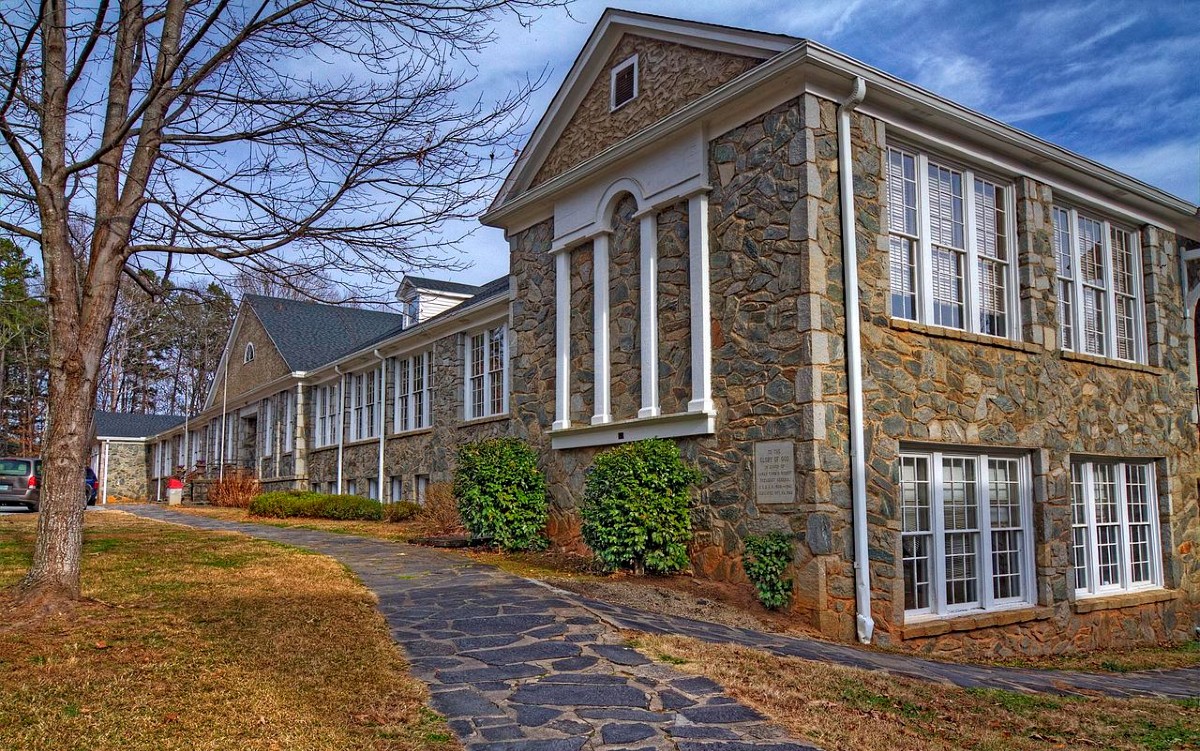
This is an interesting old building built from what appears to be river rock. But where is it? Bonus points: Tell us some history about this building. Send your best guess of what it is to feedback@statehousereport.com. And don’t forget to include your name and the town in which you live.
Our previous Mystery Photo
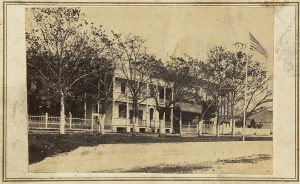 Our June 5 image, “Good porches with flag with less than 50 stars,” proved to be a ough mystery. It showed the old Magnolia Hotel in Beaufort in a photo taken between 1860 and 1870.
Our June 5 image, “Good porches with flag with less than 50 stars,” proved to be a ough mystery. It showed the old Magnolia Hotel in Beaufort in a photo taken between 1860 and 1870.
Congratulations to all who correctly guessed, including George Graf of Palmyra, Va.; Mary Greene of Columbia; Henry Eldridge of Tega Cay; David Lupo of Mount Pleasant; Jacie Godfrey of Florence; and Frank Bouknight of Summerville.
Greene, who has relatives in Beaufort, scoured to find the answer and shared this: “This is a picture of the Anchorage on the left, Sea Island in the middle and Magnolia Hotel on the right. Shows the Anchorage before the upper porch was added. Magnolia burned sometime before 1875, was replaced by a house that was moved from Barnwell Island in 1876, and then that house was moved again in 1975. The Wachovia/Wells Fargo bank is there now. Anchorage is now back to being an Inn, Sea Island was torn down in 1959 to build the Sea Island Motel.”
Lupo added this: “The flag is puzzling. The stars appear to be in rows of six with each row directly below the one above it. Since at least five rows of stars are visible, that suggests the 30-star flag that was used 1848-1851. (What could be the start of a sixth row at the top must be a photographic artifact; there’s no flag with six rows of stars until 1890.) States were being added to the union at a rapid rate in the mid-1800s, so it would not be surprising if the hotel didn’t update their flag immediately every time a star was added. The whitewashed tree trunks make it worth noting that South Carolinians were still whitewashing tree trunks in the middle of the 20th century, one hundred years after this photo was taken.”
- Send us a mystery: If you have a photo that you believe will stump readers, send it along (but make sure to tell us what it is because it may stump us too!) Send to: feedback@statehousereport.com and mark it as a photo submission. Thanks.
Voting Rights Act
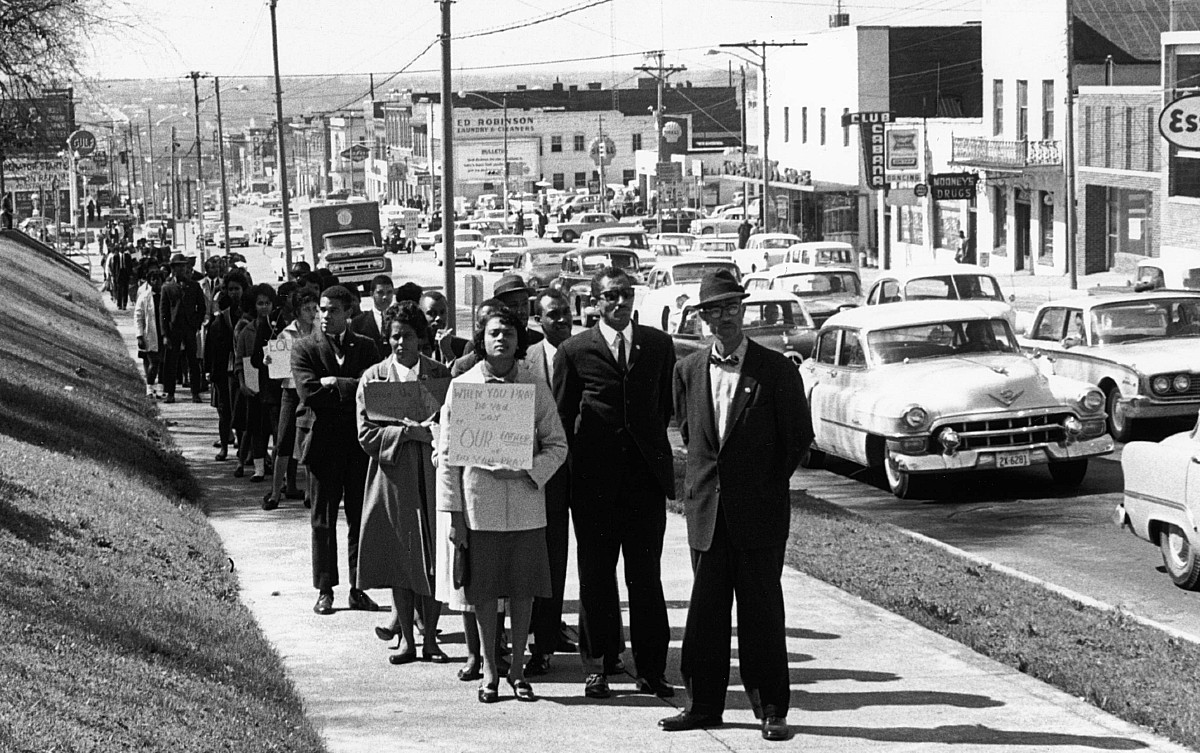
The Voting Rights Act of 1965 was enacted to reverse the effects of state disenfranchisement and secure equal voting rights for all citizens. The legislation was a victory for racial minorities, especially African Americans in the South, because many had experienced social opposition to their voting.
After Reconstruction, the Ku Klux Klan and other organizations used violence and intimidation to limit African American voter turnout. South Carolina’s African Americans faced legal challenges as well. Beginning in 1882, the Eight Box Law functioned effectively as a literacy test. In 1896 statewide party primaries that barred African American participation were introduced. With South Carolina firmly under white Democratic control, African Americans were excluded from politics, and voter registration plummeted: in October 1896 only 5,500 African Americans were registered to vote in the state.
In the presence of a growing national civil rights movement, President Lyndon Johnson issued a call for strong voting rights laws in 1965. The Voting Rights Act, signed into law in August 1965, suspended literacy tests and provided for the appointment of federal examiners with the power to register qualified citizens to vote. South Carolina immediately challenged the law’s constitutionality in South Carolina v. Katzenbach. South Carolina, supported by briefs from other states, argued that Congress could not authorize federal officials to impose themselves on state affairs in the manner outlined by the act. The United States Supreme Court rejected that argument by an eight-to-one vote, declaring that Congress acted within its authority to enforce the goals of the Fifteenth Amendment. For the court’s majority, widespread discrimination constituted “exceptional conditions” that allowed Congress to pass legislation to protect voting rights.
On being signed into law, the act had an almost immediate impact. In South Carolina the number of American Americans registered to vote rose dramatically. In 1964, 38.7 percent of voting-age African Americans were registered. Four years later that number climbed to 50.8 percent. There were also gains in African American political participation. Twelve black South Carolinians attended the 1968 Democratic National Convention as delegates. In 1970 three African Americans were elected to the General Assembly, the first black legislators since the 1890s. Less than a decade after the passage of the act, the number of African American legislators had risen to thirteen.
According to the United States Justice Department, the Voting Rights Act of 1965, as extended in 1970, 1975, and 1982, may be the most significant civil rights legislation passed by the United States Congress. Now blacks in South Carolina register to vote at about the same rate as whites. Enforcement of the act provides opportunities to challenge election methods that may weaken majority voting strength—for example, at-large elections, racially gerrymandered districting plans, or runoff requirements. Recently, leading civil rights organizations, through the National Commission on the Voting Rights Act, conducted hearings across the nation about the status of African American, Latino, Native American, and Asian American voters. Its report, presented to Congress in February 2006, documented the act’s achievements as well as the need for the reauthorization of those portions of the act due to expire in 2007.
— Excerpted from an entry by Kevin Fellner. This entry may not have been updated since 2006. To read more about this or 2,000 other entries about South Carolina, check out The South Carolina Encyclopedia, published in 2006 by USC Press. (Information used by permission.)
ABOUT STATEHOUSE REPORT
Statehouse Report, founded in 2001 as a weekly legislative forecast that informs readers about what is going to happen in South Carolina politics and policy, is provided to you at no charge every Friday.
Meet our team
- Editor and publisher: Andy Brack, 843.670.3996
- Statehouse correspondent: Lindsay Street
Buy the book
Now you can get a copy of editor and publisher Andy Brack’s We Can Do Better, South Carolina! ($14.99) as a paperback or as a Kindle book ($7.99). . The book of essays offers incisive commentaries by editor and publisher Andy Brack on the American South, the common good, vexing problems for the Palmetto State and interesting South Carolina leaders.
More
- Mailing address: Send inquiries by mail to: 1316 Rutledge Ave., Charleston, SC 29403
- Subscriptions are free: Click to subscribe.
- We hope you’ll keep receiving the great news and information from Statehouse Report, but if you need to unsubscribe, go to the bottom of the weekly email issue and follow the instructions.
- Read our sister publications: Charleston City Paper (every Wednesday) | Charleston Currents (every Monday).
- © 2020, Statehouse Report, a publication of City Paper Publishing, LLC. All rights reserved.




Pingback: NEW for 6/12: Masks vs. surge; Right side of History; Expand Medicaid – Statehouse Report